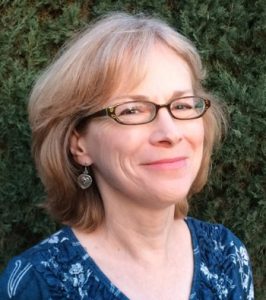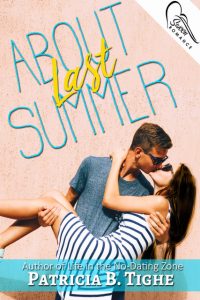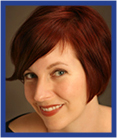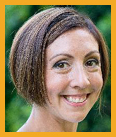 Welcome to Patricia Tighe, our first guest of 2018! Patricia is author of LIFE IN THE NO-DATING ZONE, LIFE IN THE LUCKY ZONE, AND LIFE IN THE DANGER ZONE (yes, you guessed it, that’s a series!). Her newest novel, ABOUT LAST SUMMER, is about a girl who assumes a fake identity on a dare, which is all fun and games … until she runs into the boy she dated (you guessed it again!) last summer!
Welcome to Patricia Tighe, our first guest of 2018! Patricia is author of LIFE IN THE NO-DATING ZONE, LIFE IN THE LUCKY ZONE, AND LIFE IN THE DANGER ZONE (yes, you guessed it, that’s a series!). Her newest novel, ABOUT LAST SUMMER, is about a girl who assumes a fake identity on a dare, which is all fun and games … until she runs into the boy she dated (you guessed it again!) last summer!
 What gave you the idea to write this novel?
What gave you the idea to write this novel?
For ABOUT LAST SUMMER, I was playing around with the idea of secret identities and what might happen if someone showed up who knew who you really were. And what if that someone happened to be your ex? From there it was just a matter of putting my couple in a setting where they couldn’t get away from each other.
How many books have you written, and how many have seen the light of day?
I’ve completed nine books — two middle grade that will probably never see the light of day, two YA fantasy novels that I still might do something with, and five YA contemporary romance novels published by Swoon Romance. Four are out now and the fifth will be out this Spring.
What types of characters are your favorite to write?
I love writing characters that make me laugh. If I can have at least one character that’s a little bit nuts or unusual, I’m a happy writer. It may be that I’m the only one who laughs at that character’s wit, but I still enjoy it.
Kissing scenes: Do you find them they easy or more challenging to write?
I’ve always found kissing scenes challenging to write, not because of the actual physical aspect but because of the emotional component. It’s so important to get that right. Well, at least as right as possible. There’s give and take and character growth to take into consideration. And within all that, you have to bring the swoon!
How did you find your critique partners?
The majority of my critique partners came from the time I spent at Seton Hill University where I earned a master’s in Writing Popular Fiction in 2008. Having worked together for so long, I know I can trust them. Each individual will point out a different aspect in my work that I need to address. It’s wonderful.
What is a typical comment you’d get from your critique partner?
Ha! In almost every manuscript I’ll see: “You’ve got a cluster of passive sentences in that paragraph. Maybe rewrite.”
Ah, yes. Active sentences are definitely better! And on that note, let’s move to the speed round!
- Alpha males vs. sensitive types: Sensitive types with a sense of humor!
- Red roses vs. blue violets: Blue violets.
- Morning glory vs. night owl: Night owl. And I always live to regret it.
- Tropical island vs. mountain getaway: Tropical island in the shade.
- Wizards vs. vampires: Wizards!
- French fries vs. cookies: Cookies. All the cookies.
Thanks so much for visiting our blog, and please, please keep bringing the swoo! Here’s where fans can find Patricia:
The mother of two grown sons, Patricia B. Tighe lives in West Texas with her husband and dog. She eats way too much pizza, drinks way too much coffee, and watches way too much NFL football. On the bright side, she also reads and writes teen fiction. She promises to include as much romance, angst, and adventure as possible in her books.

 Back in 2005, I completed my first manuscript. I was jazzed to learn that I could, in fact, accomplish such a thing, that I could take a story from start to finish without getting bored and starting something new or bowing out because I felt overwhelmed or lost along the way. I started Googling “how you get a book published” and quickly realized (especially back then), that querying and finding a literary agent was a necessary first step in the process, especially if an author had any hope of being considered by well-known publishing companies.
Back in 2005, I completed my first manuscript. I was jazzed to learn that I could, in fact, accomplish such a thing, that I could take a story from start to finish without getting bored and starting something new or bowing out because I felt overwhelmed or lost along the way. I started Googling “how you get a book published” and quickly realized (especially back then), that querying and finding a literary agent was a necessary first step in the process, especially if an author had any hope of being considered by well-known publishing companies. Erin Fletcher: One of my goals for 2018 is to read more! For a lot of 2017, I replaced reading with things like my day job, watching YouTube, and scrolling through BuzzFeed. The result? I miss reading! I have a large stack of books (okay, fine, I have a few large stacks of books) just waiting for me, and I can’t wait to dive into them! I think I’ll make my first read of 2018 a book from one of my fellow Sweethearts … leave a comment below if you have a suggestion for a Sweetheart book you’ve loved!
Erin Fletcher: One of my goals for 2018 is to read more! For a lot of 2017, I replaced reading with things like my day job, watching YouTube, and scrolling through BuzzFeed. The result? I miss reading! I have a large stack of books (okay, fine, I have a few large stacks of books) just waiting for me, and I can’t wait to dive into them! I think I’ll make my first read of 2018 a book from one of my fellow Sweethearts … leave a comment below if you have a suggestion for a Sweetheart book you’ve loved! Stephanie Scott: My aim is to finish up two YA manuscripts in progress to pitch to publishers. My goal is to turn them in to my agent in March. I spent part of New Year’s Day setting up my 2018 planner and breaking down the tasks of what needs to be done and by when. I don’t get super detailed, but general deadlines and goals along the way help me a lot. I’m also venturing into romance for adult readers and am planning a self-publish launch as part of a group series. This has a spring timeline too. The second half of 2018 is wide open with possibility!
Stephanie Scott: My aim is to finish up two YA manuscripts in progress to pitch to publishers. My goal is to turn them in to my agent in March. I spent part of New Year’s Day setting up my 2018 planner and breaking down the tasks of what needs to be done and by when. I don’t get super detailed, but general deadlines and goals along the way help me a lot. I’m also venturing into romance for adult readers and am planning a self-publish launch as part of a group series. This has a spring timeline too. The second half of 2018 is wide open with possibility! Linda Budzinski: In December, I started back to work full-time with a new job that is going to require a lot of travel. There are lots of aspects of the job I’m excited about, but travel is NOT one of them. I like being home with my husband and sleeping in my own bed. I tend to see travel as a hassle and a major stress-inducer. So, my goal is to figure out how to turn that around. I want to adjust my attitude and learn to enjoy my work trips. And I NEED to figure out how to keep my writing on schedule while I’m on the road! (And if anyone has thoughts on how to do that, I’d love to hear them!)
Linda Budzinski: In December, I started back to work full-time with a new job that is going to require a lot of travel. There are lots of aspects of the job I’m excited about, but travel is NOT one of them. I like being home with my husband and sleeping in my own bed. I tend to see travel as a hassle and a major stress-inducer. So, my goal is to figure out how to turn that around. I want to adjust my attitude and learn to enjoy my work trips. And I NEED to figure out how to keep my writing on schedule while I’m on the road! (And if anyone has thoughts on how to do that, I’d love to hear them!) Darcy Woods: For the past few years, I’ve said YES to virtually all the invites and opportunities that have come my way. So when 2018 rolled around, I decided to declare it the Year of NO! That doesn’t mean I’ll say no to everything, or that I regret the years of yeses — not by a long shot! They’ve led to so many unforgettable experiences, expanded horizons, and lasting friendships. I’ve just come to recognize the Yes Years are not infinitely sustainable for me. (Egads, I’m human after all!) Time might be one of the most precious gifts we can give ourselves. And with 2017 being an especially tumultuous year, I intend to do just that!
Darcy Woods: For the past few years, I’ve said YES to virtually all the invites and opportunities that have come my way. So when 2018 rolled around, I decided to declare it the Year of NO! That doesn’t mean I’ll say no to everything, or that I regret the years of yeses — not by a long shot! They’ve led to so many unforgettable experiences, expanded horizons, and lasting friendships. I’ve just come to recognize the Yes Years are not infinitely sustainable for me. (Egads, I’m human after all!) Time might be one of the most precious gifts we can give ourselves. And with 2017 being an especially tumultuous year, I intend to do just that! Robin Constantine: I spent most of last year trying to find the joy in my writing. It took some effort and many stops and starts, but I did find it again. Now I want to keep fanning those creative flames. In the past I’ve always worked on one project, taken a break, then started something new. My goal in 2018 is to always be working on something. I’d also like to write something out of my comfort zone — which may for my eyes only, but who knows, sometimes when the goal is to have fun you find some gems!
Robin Constantine: I spent most of last year trying to find the joy in my writing. It took some effort and many stops and starts, but I did find it again. Now I want to keep fanning those creative flames. In the past I’ve always worked on one project, taken a break, then started something new. My goal in 2018 is to always be working on something. I’d also like to write something out of my comfort zone — which may for my eyes only, but who knows, sometimes when the goal is to have fun you find some gems! Karole Kozzo: I hope to accomplish one of my big personal goals next month in Orlando by completing the Disney Princess Half Marathon, which will be my first half marathon attempted. I’m aiming for a respectable time (that might mean something different to me than to serious runners, I admit!) while still having fun and making sure to stop and smell the Dole Whip and snap pictures with some characters. And I have several writing goals! I’m hoping to sell my fifth YA romance manuscript. I would love to finish a WIP in time for Pitch Wars (but if not this year, then next for sure). I’m hoping to branch out a bit beyond romance, which feels challenging and a bit scary for me, but also exciting. Any story I write will have some romantic elements for sure, but I look forward to pushing myself when it comes to structure and plotting. Happy New Year, everyone!
Karole Kozzo: I hope to accomplish one of my big personal goals next month in Orlando by completing the Disney Princess Half Marathon, which will be my first half marathon attempted. I’m aiming for a respectable time (that might mean something different to me than to serious runners, I admit!) while still having fun and making sure to stop and smell the Dole Whip and snap pictures with some characters. And I have several writing goals! I’m hoping to sell my fifth YA romance manuscript. I would love to finish a WIP in time for Pitch Wars (but if not this year, then next for sure). I’m hoping to branch out a bit beyond romance, which feels challenging and a bit scary for me, but also exciting. Any story I write will have some romantic elements for sure, but I look forward to pushing myself when it comes to structure and plotting. Happy New Year, everyone!